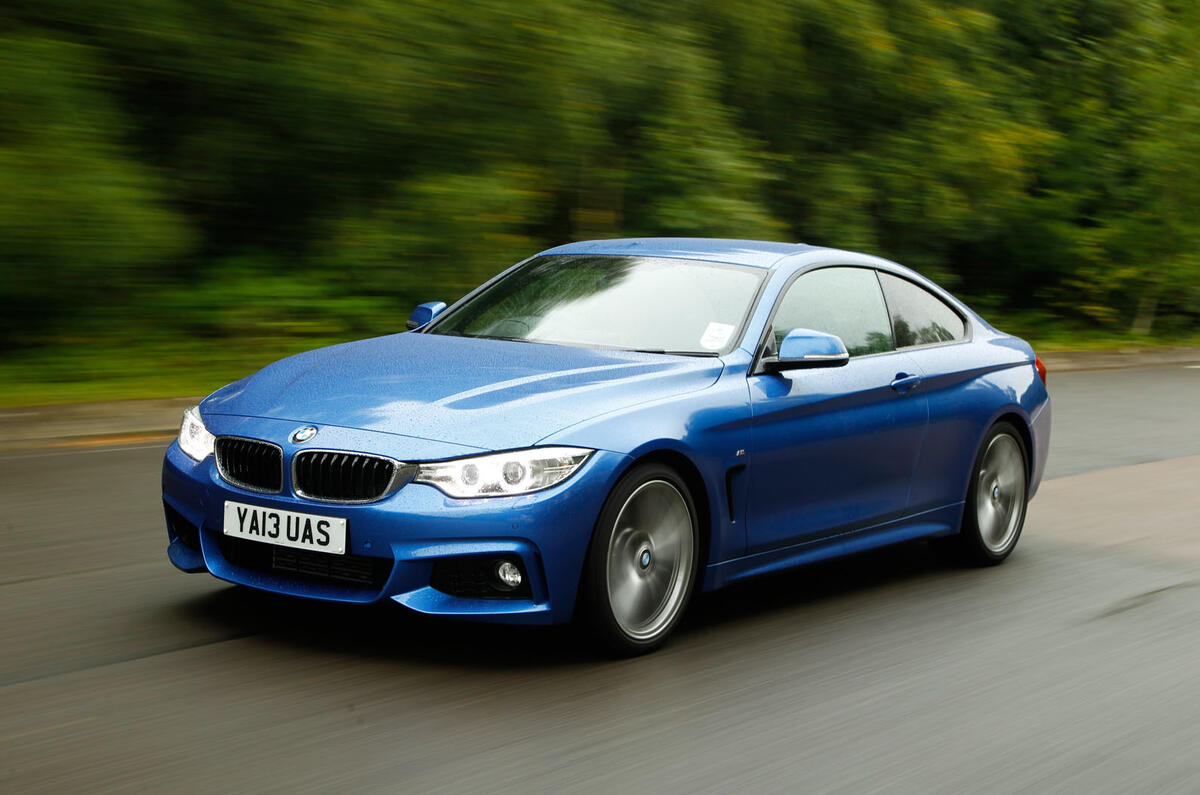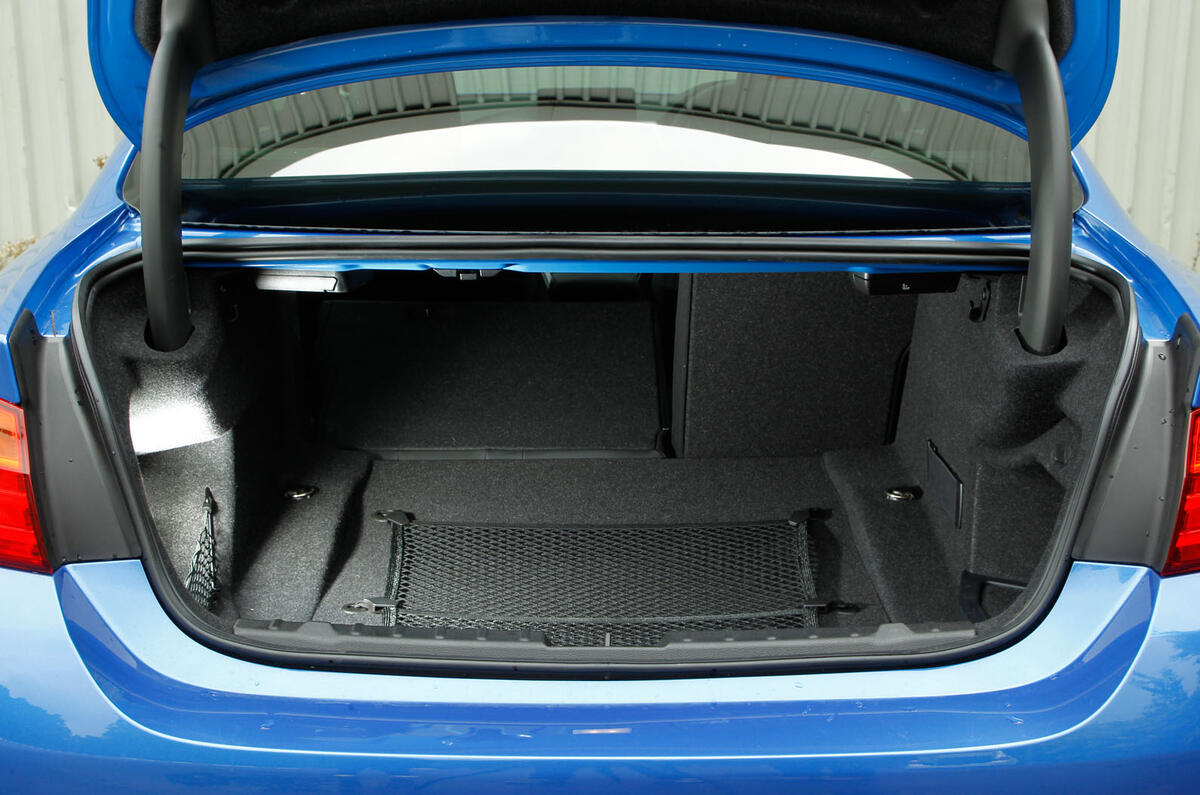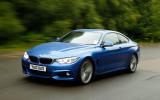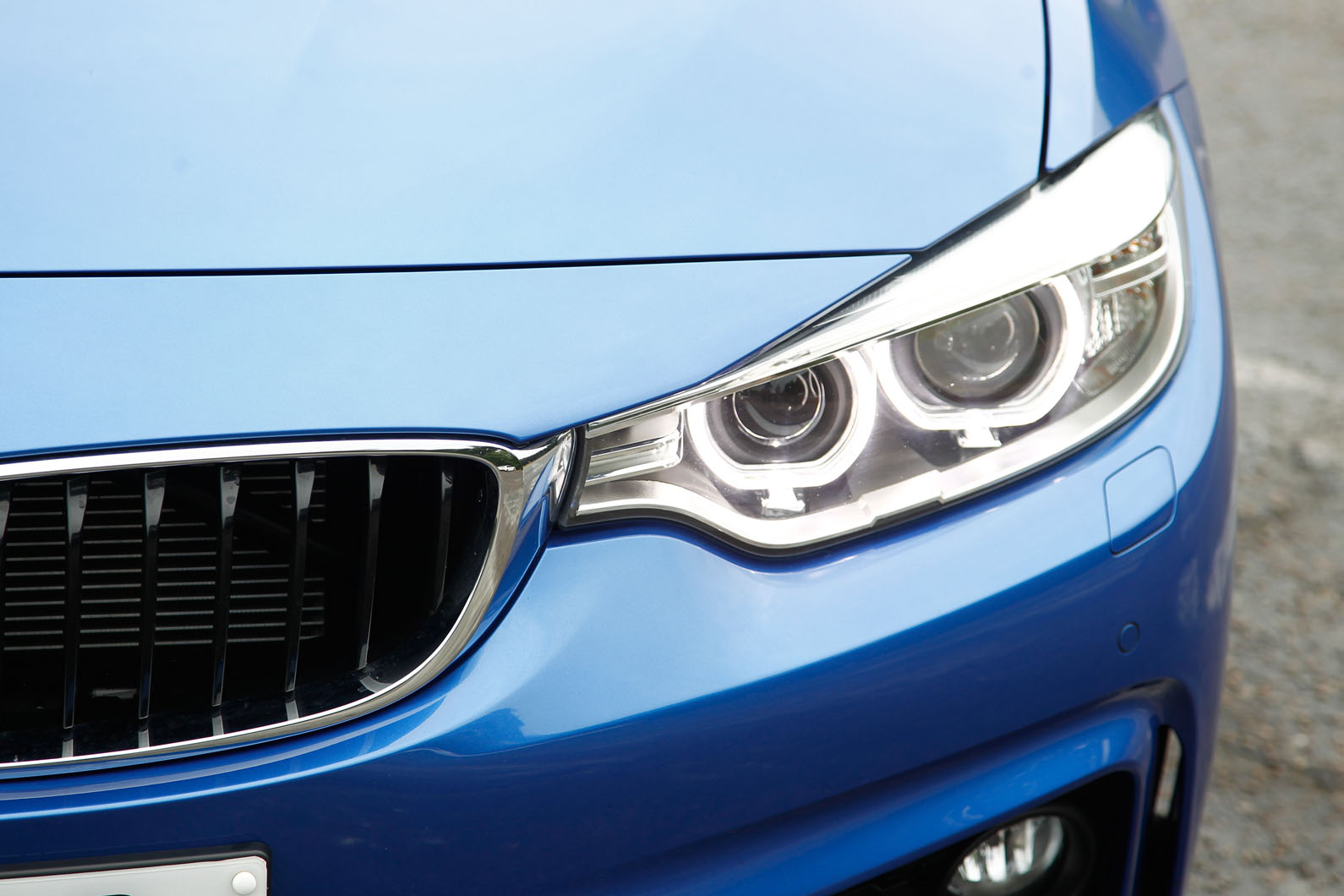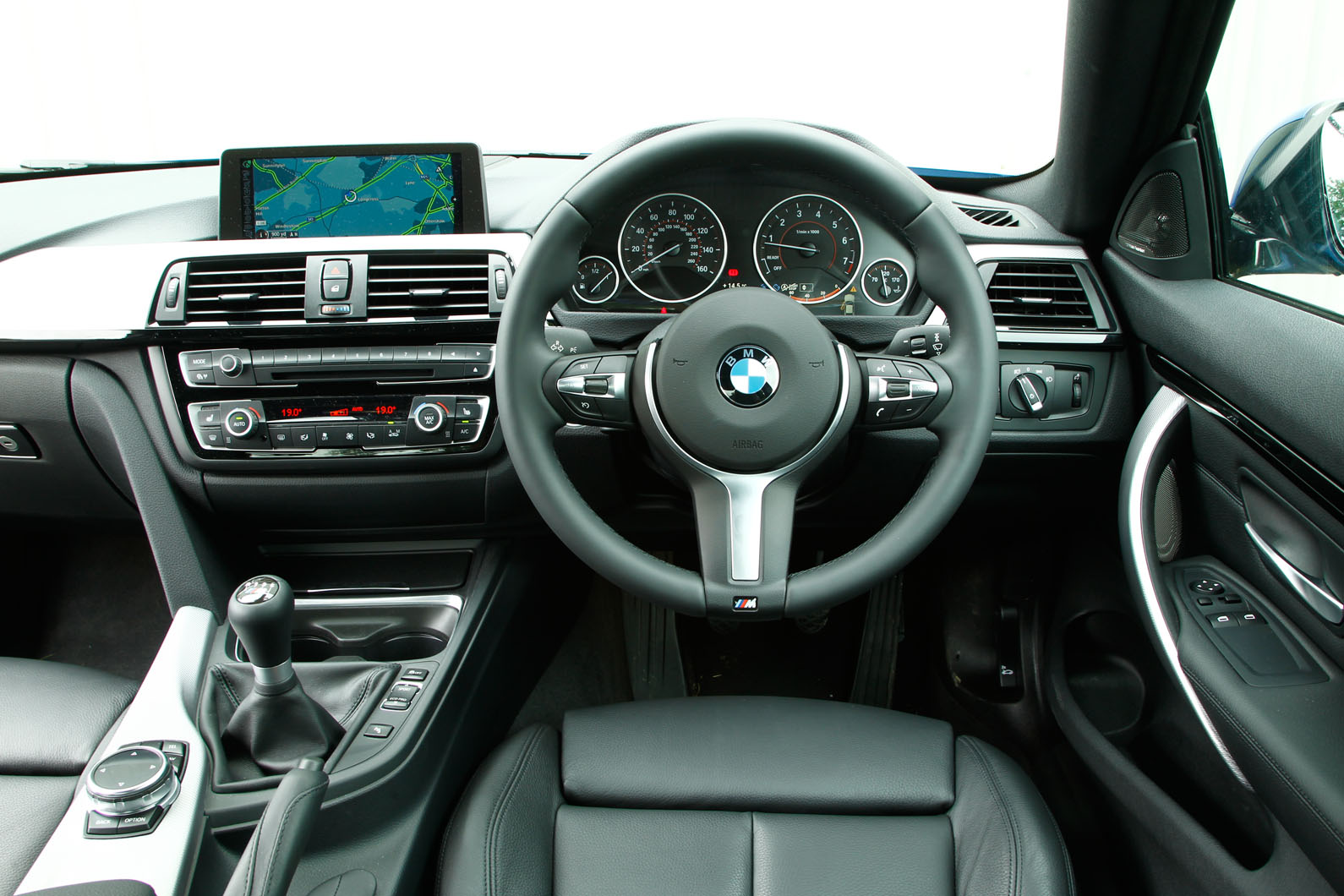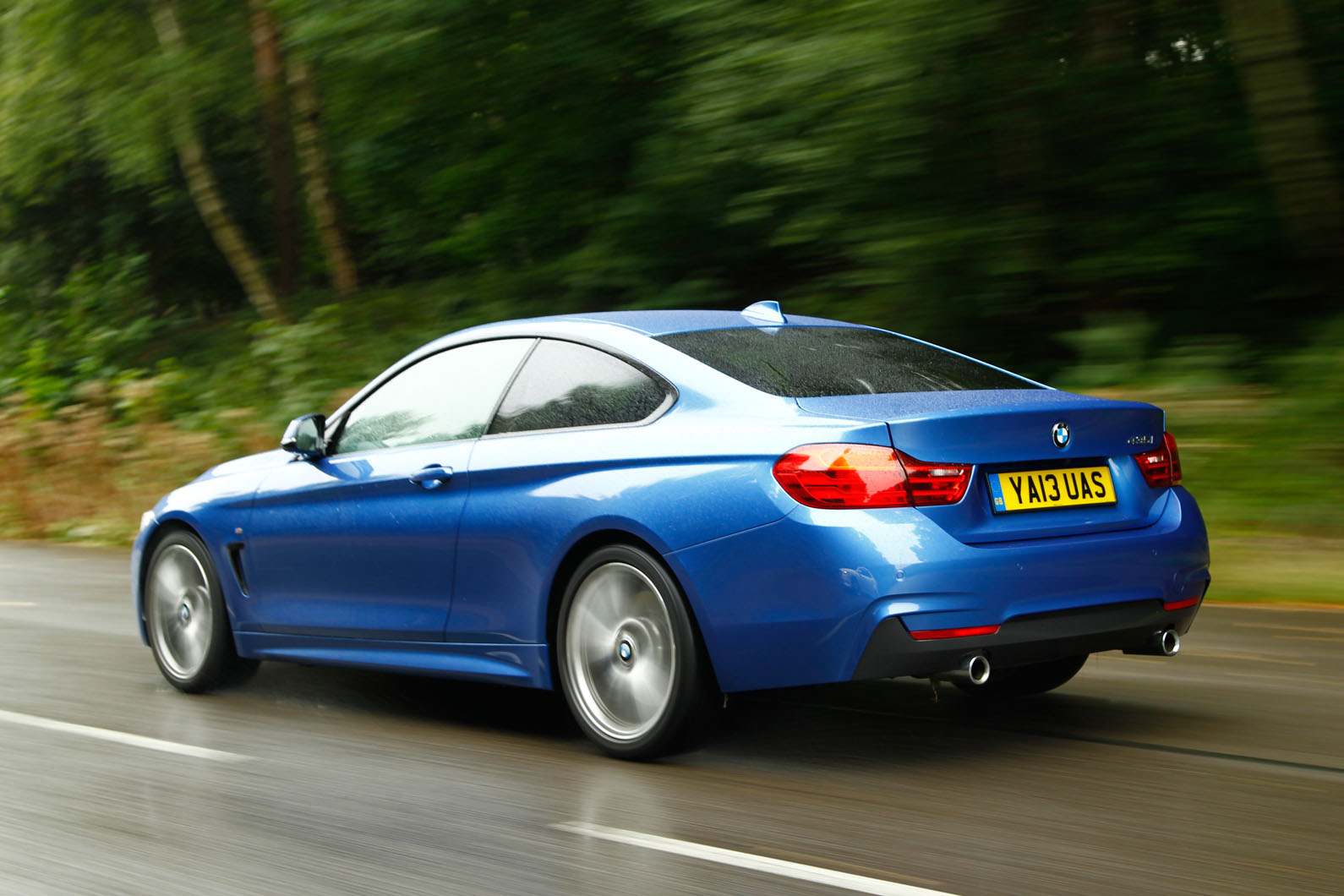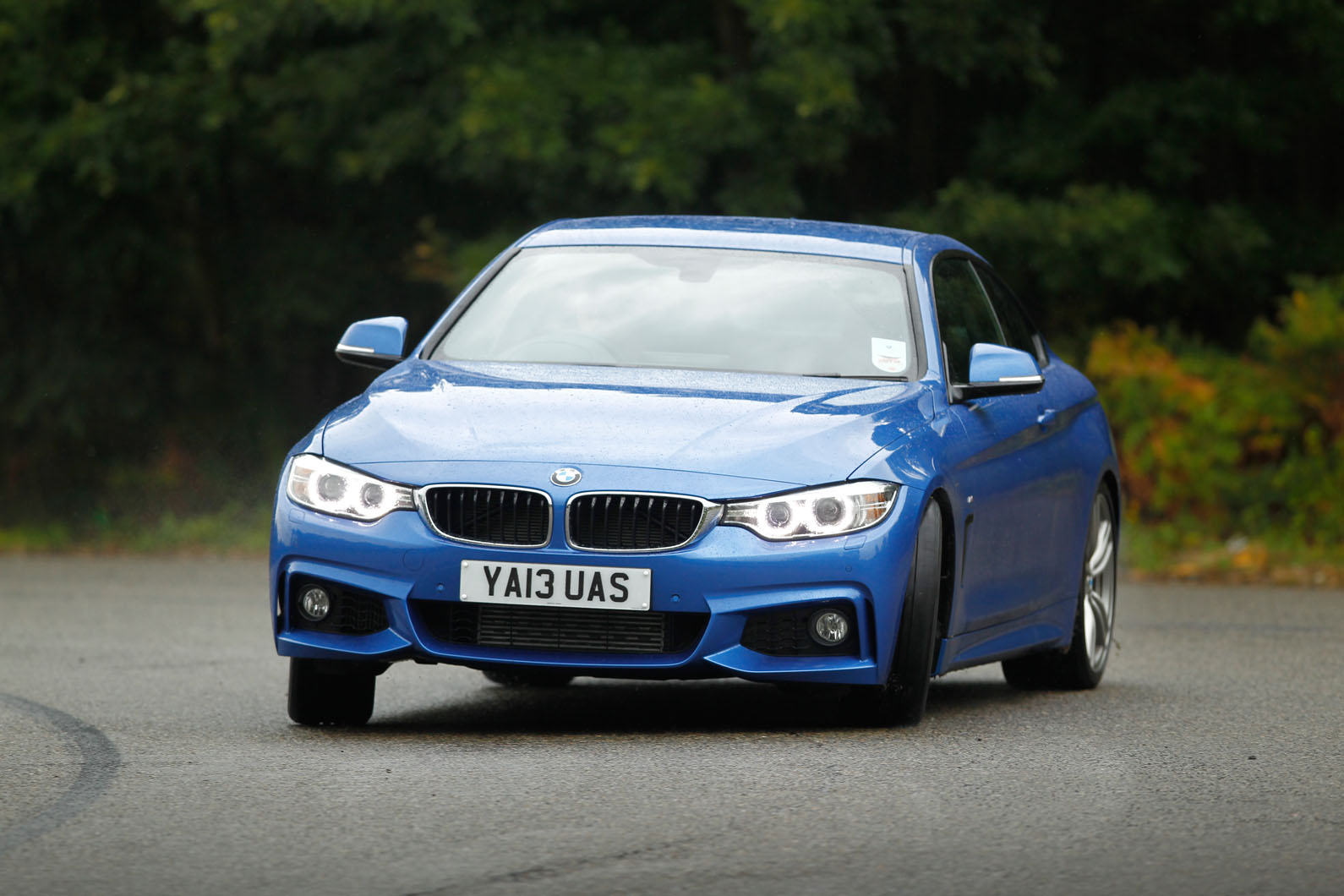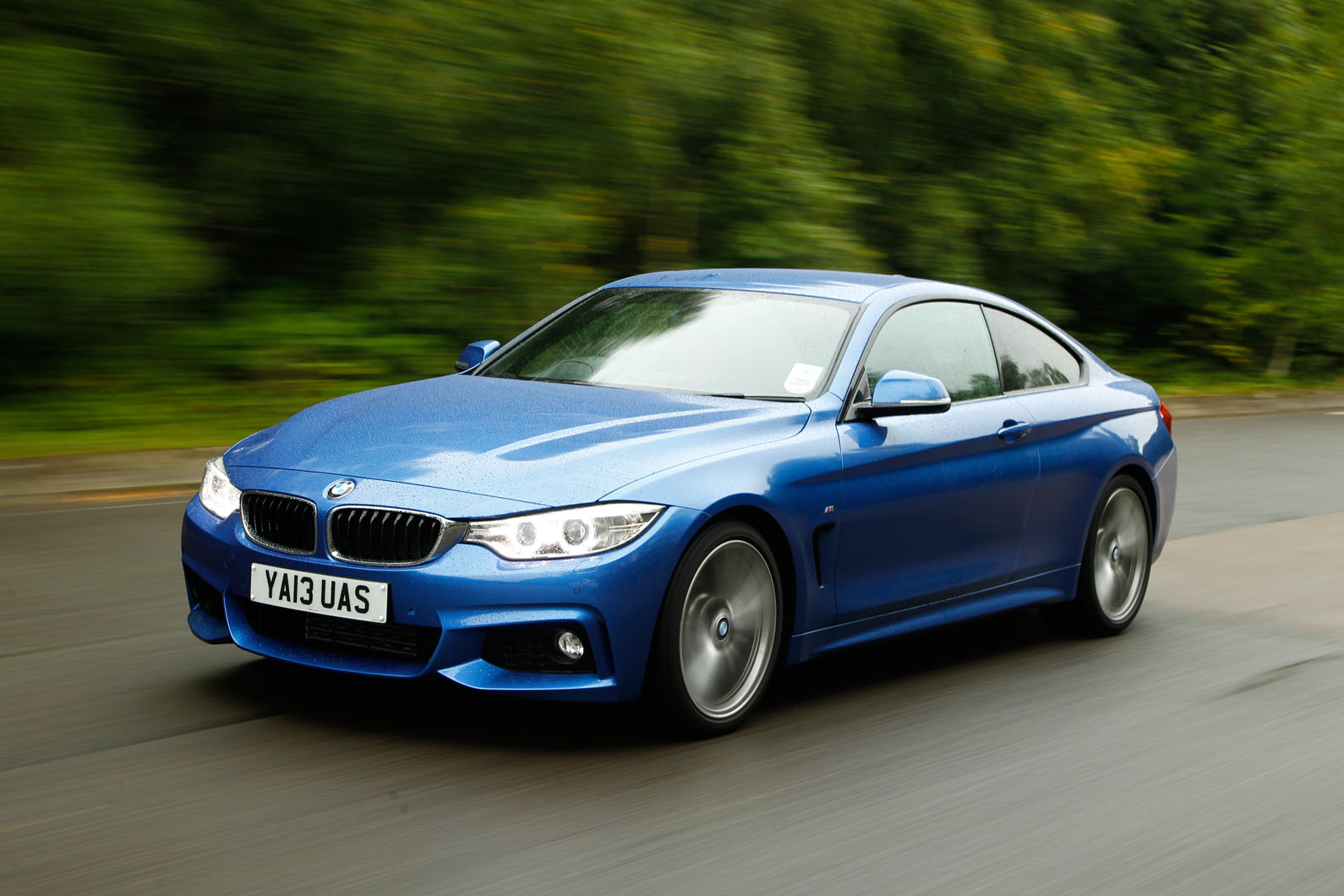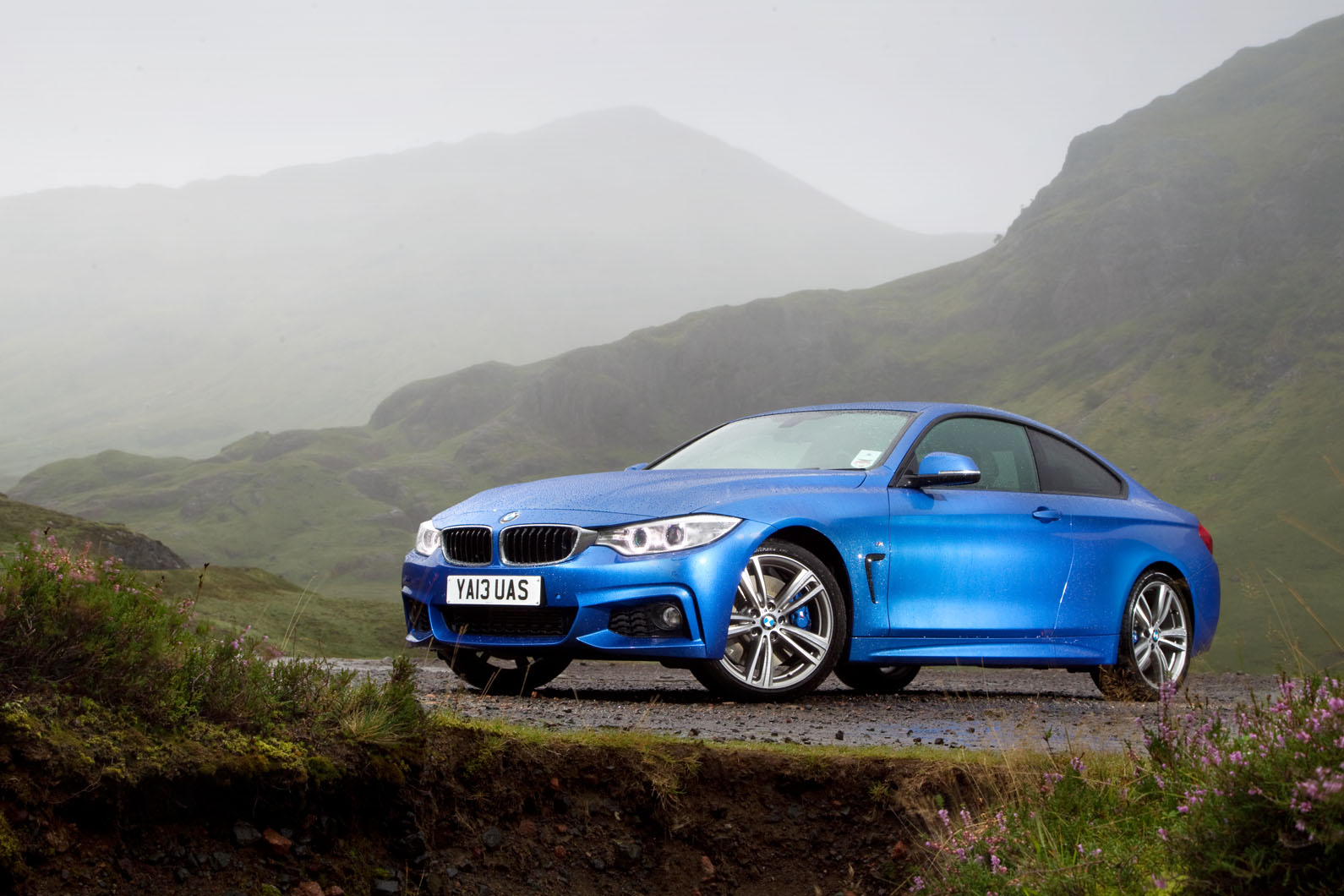No one really buys a BMW for the cabin ambience. Munich itself would probably concede that, on outright material substance in most executive classes, Mercedes continues to set the standard. Meanwhile, on business-smart style, Audi leads the way.
But while it’s a comfortable, solid and wholly pleasant place in which to spend time, the BMW 4 Series’ cockpit is entirely predictable and perhaps a missed opportunity to narrow either of those notional gaps.
What you’ll find here is 95 percent stock 3 Series componentry. In a 3 Series coupé you might forgive that, but in a 4 Series – just as we reported of the 6 Series – you can’t help feeling short-changed by the lack of differentiation.
M Sport-spec cars get a rather lovely, pleasingly compact M Sport steering wheel, for example, but that was easily the most special ingredient in the entire cabin. Which, for a £32k-plus luxury coupé, isn’t saying much. One car we tested had black leather with black trim accents; there are more colourful treatments, but we’re not sure any of them would be bright enough to excuse BMW totally, whether it has transgressed via laziness, pragmatism or simple lack of ambition.
BMW is nothing if not thorough, though. The control ergonomics are excellent, the instruments are clear and the iDrive menu is foolproof. The latter is made easier to use by a touchpad found on the top of the rotary selector, which you can use to trace alphanumerical inputs for the telephone and navigation systems.
The front seats are comfortable and supportive, only lacking for good lumbar support on our test car. The rear ones are accessible enough and offer decent levels of accommodation; you wouldn’t choose to put a large passenger in one for long, but if you had to, he’d be more comfortable than in the back of an A5 and little less so than in a Mercedes E-Class coupé.
There are two trim levels to choose from - Sport and M Sport, while those wanting an M4 get a bespoke spec. The entry-level Sport trim equips the 4 Series with 18in alloy wheels, gloss black exterior trim, dual chrome exhausts, LED head, rear and fog lights and parking sensors as standard on the outside. Inside the 4 Series gets dual-zone climate control, heated front seats, a Dakota leather upholstery, interior ambient LED lighting and BMW's brilliant iDrive infotainment system complete with sat nav, DAB radio, Bluetooth and USB connectivity, BMW's online services and a 6.5in screen.
Upgrading to M Sport adds an aggressive bodykit, sports suspension and interior touches such as, door sills and an M Sport steering wheel, alongside BMW's Professional Media pack. Opt for the monstrous M4 then you have two core trims to choose from currently - standard and Competition Pack. The regular M4 gets 19in alloy wheels, active differential, adaptive suspension, quad-exhaust, an 8.8in iDrive display, cruise control, wireless charging dock and automatic lights and wipers as standard.
Opt for the competition pack to your M4 and you get 20in alloys, a loudspeaker system, a tweaked adaptive suspension set-up with specific springs, dampers and anti-roll bars and reconfigured active differential, driving modes and traction control. The limited edition hardcore M4 GTS gets adaptive LED headlights, ceramic braking, a GTS coilover suspension, a leather and Alcantara upholstery, a M-division tuned dual-clutch gearbox and three point seat belts.


